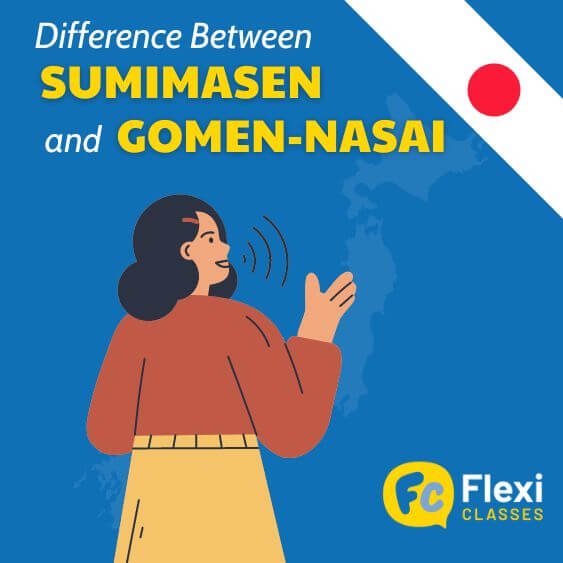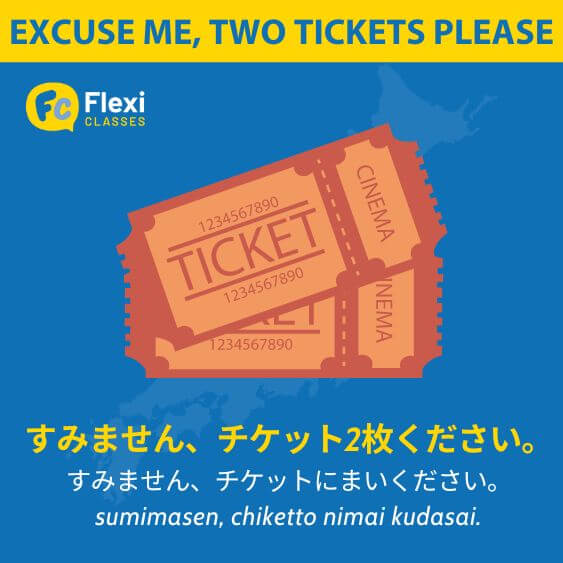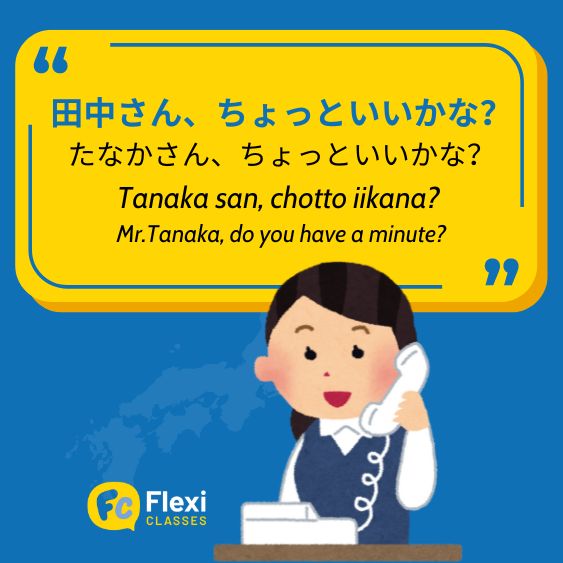Sumimasen VS Gomen-nasai: Knowing How to Use Them
Differences Between Sumimasen and Gomen-nasai
Sumimasen and Gomen-nasai are both very common expressions of apology used in everyday conversation. These expressions will be familiar to those who are learning Japanese or actually living in Japan.

However, even within the same apology, subtle differences exist between each phrase, and it is important to choose the appropriate expression depending on the situation in which it is used.
Using these expressions in the wrong situation may give the other person a different impression than intended.
So care must be taken, especially in Japanese society, which is sensitive to cultural nuances!
This article will explain the exact meaning of each expression and show you how to use each one – with examples!
Sumimasen VS Gomen-nasai || General Usage: Sumimasen
Sumimasen VS Gomen-nasai || General usage: Gomen-nasai
Sumimasen VS Gomen-nasai || Original Meaning
Sumimasen VS Gomen-nasai || Expressions related to “Gomen”
Sumimasen VS Gomen-nasai || FAQs
Sumimasen VS Gomen-nasai || General Usage: Sumimasen
Generally speaking [sumimasen] is translated as ‘excuse me’ and ‘sorry’ – but usually for something minor.
The most significant difference is that Sumimasen has a wider meaning than just apology.

For example, Sumimasen can be used to express gratitude or to address someone.
Just as Thanks is used instead of Thank you in English, Sumimasen is used in Japanese when it is not as formal as saying Arigatou Gozaimasu.
For example, when someone clears a way for you or picks up a pen, sumimasen is a way to express gratitude.
Especially for strangers or those who are not so close, Sumimasen is more common than Arigatou.
そのペンを取ってください
Please pass me the penどうぞ
Here you areすみません
Thanksすみません、東京駅はどっちですか?
すみません、とうきょうえきはどっちですか?sumimasen, toukyou eki wa docchi desuka?
Excuse me, which way is Tokyo station?
すみません、チケット2枚ください。
すみません、チケットにまいください。sumimasen, chiketto nimai kudasai.
Excuse me, two tickets please.
Sumimasen is an expression that is almost always used, especially in conversation with strangers.
Many Japanese say Suimasen すいません but the correct term is Sumimasen すみません . The etymology is explained in the chapter below. From the etymological point of view, “Sumimasen” is the correct term, so use su”mi”masen as much as possible.
Have you mixed up any words when speaking in Japanese? Let us know in the comments section!
Sumimasen VS Gomen-nasai || General Usage: Gomen-nasai
Gomen-nasai is basically used only in apologetic situations. Gomen-nasai also has the usage of invocation, but Sumimasen is more natural.
Although Gomen-nasai may literally appear polite, it is considered inappropriate as a word of apology in business or formal situations.
In such cases, 申し訳ございません もうしわけございません moushiwake gozaimasen should be used. For a lighter apology, use Sumimasen.
資料の数値が間違っておりました。大変申し訳ございません。
しりょうのすうちがまちがっておりました。たいへんもうしわけございません。Shiryou no suuchi ga machigatte orimashita. Taihen moushiwake gozaimasen.
The figures in the document were incorrect. We are very sorry.
ミーティングは明日でいいですか?
Can the meeting be tomorrow?すみません、明日は予定があります
Sorry, I’m not available tomorrow.Gomen-nasai is used in the following two situations:
(1) When the subject of the apology is a child.
(2) When the person is very close to the other party. In conversations between adults, “gomen,” a casual version of “gomen-nasai,” is often used to lightly apologize, but only in very close relationships.
A parent and a child:
ほら、謝りなさい!
Look, apologize!ごめんなさい
I’m sorryAmong friends:
遅いぞ!
You’re late!ごめん、寝坊した
Sorry, I oversleptSumimasen VS Gomen-nasai || Original Meaning
Sumimasen is written in Kanji as 済みません すみません .
Gomennasai is 御免なさい ごめんなさい .

The character 済 すみ means to finish or to be completed. So Sumimasen literally means the things are not done yet.
By saying this, we express our apologies. This expression refers to the possibility of continuous relationships, so you can say sumimasen in business or polite situations.
御免 ごめん Gomen is a historically used term. 免 めん means exemptions, waivers and immunity. Like お, 御 ご is a polite prefix.
There is an old saying, 天下御免 てんかごめん tenka gomen.
天下 てんか Tenka means the whole country or the whole world, and 天下御免 てんかごめん tenka gomen means to act freely and recklessly without restraint. This means to be free from all responsibilities.
御 ご is a term attached to an action by a ruler or emperor, and the nuance is that such a behavior is permitted by the ruler.
The modern word gomen also implies something like exempt me from my responsibilities. Thus, it is not said to someone in a higher position than oneself. This is probably the main reason why Gomen-nasai is not used in business situations.

Are the Japanese Always Apologetic? How to Say Sorry in Japanese
Understanding the Variations of Sorry in Japanese || Casual and Formal Expressions As you might’ve guessed, today’s blog post is all about how to say “Sorry” in Japanese. Apology and humility play an important role in Japanese culture. In the…
Sumimasen VS Gomen-nasai || Expressions related to Gomen
I mentioned earlier that gomen-nasai is rarely used as an invocation, but until the Showa period, the expression gomen-kudasai ごめんください was very commonly used.
Kudasai is also well known to learners of Japanese as a standard phrase for asking for something. Such an expression, a simple combination of Gomen and Kudasai, was once frequently used as a very Japanese expression.
This phrase was often used to let people know that you were visiting someone when you went to his or her house or visited a store. It is a phrase often heard in old movies, but is rarely used today except by the elderly.
In fact, Gomen is sometimes used in the workplace. However, it can only be said from a superior to someone in a lower position.
For example, if the person you want to talk to is talking to someone else, you can talk to him or her as follows:
ごめん、ちょっといい?
gomen, chotto ii?
Sorry. Can I have a word?
Of course, there is nothing wrong with saying this to a subordinate, but there is the nuance of looking at him or her in a somewhat childish way.
For an expression with even more respect for the other party, you can say without gomen like:
田中さん、ちょっといいかな?
たなかさん、ちょっといいかな?Tanaka san, chotto iikana?
Mr.Tanaka, do you have a minute?

When Gomen is used in the sense of apology, a more appropriate expression would be Moushi wake nai 申し訳し もうしわけし .
If you become the boss of a Japanese person, you will win his or her respect by saying Moushiwake nai properly, instead of Gomen.
As we have seen above, there are numerous differences between the two expressions. Knowing the original meaning of the words will help you understand the difference in usage. Let’s study hard!
Sumimasen VS Gomen-nasai || FAQs
When should I use “sumimasen?”
You can use Sumimasen when you speak to someone, apologize and show mild appreciation. Especially when speaking to strangers, sumimasen is the most frequently used expression.
When should I use “Gomen-nasai?”
You can use this expression, but especially in business and polite situations, you are not supposed to say “Gomen-nasai.” In workplaces, you are supposed to say “Moushi wake arimasen” when you apologize.
So, when do Japanese people say “Gomen-nasai?”
“Gomen-nasai” is used as an apology of children. Among adults, its abbreviated form “gomen” is used, but only in close relationships.
What should I say when I want to apologize in Japanese?
To strangers or if it’s not that serious, you can say “sumimasen” as an apology. In business situations or serious situations, you can say “moushiwake arimasen.”
Why it is not polite to say “gomen-nasai” in business situations?
Because the expression is about exemption of responsibility by rulers or emperors. So, if you are the boss, you can say “gomen” to your subordinates. But as subordinates, you can’t say “gomen” or “gomen-nasai” to your boss or customers.
Want More From LTL?
WANT TO LEARN JAPANESE? Check out our online Japanese courses here.
We offer a 7-day free trial to all new students where you can study 24/7.
What about studying Japanese in Japan instead? We’ve got your back. Our Japanese courses in Tokyo can either be taken in small groups of no more than 5 students or individually for a more tailored experience.
We even offer incredible homestay experiences in Tokyo as well.
Come and be a part of this amazing community.









